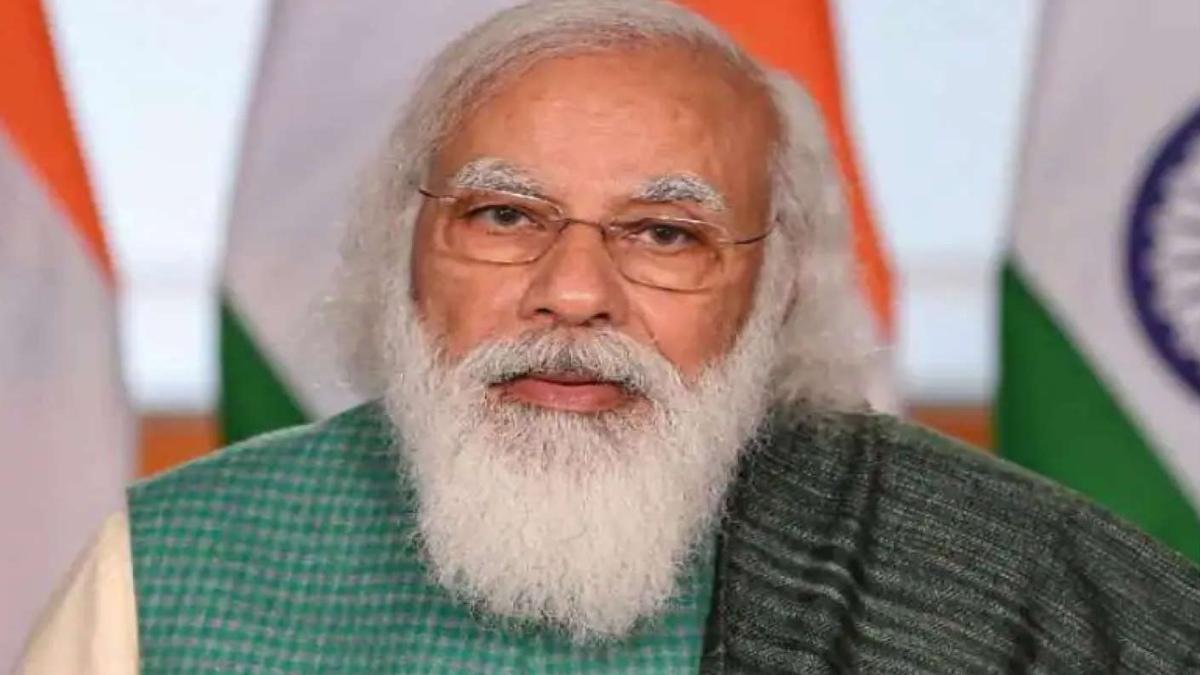
More than a year after President Ramnath Kovind gave his consent to the three farm laws, Prime Minister Narendra Modi, in a surprise announcement on Friday morning, said that the laws would be repealed during the winter session of Parliament starting from 29 November.
In his address to the nation at 9 am, the news about which was flashed minutes before the speech, the Prime Minister said the three laws were for the benefit of the farmers but “we couldn’t convince a section of farmers despite our best efforts”.
“The goal of the three farm laws was to empower farmers, especially small farmers. In the coming Parliament session, we will take constitutional measures to repeal these farm laws,” he said.
The announcement coincided with the occasion of Guru Nanak Jayanti and the opening of Kartarpur Sahab corridor and came less than 150 days ahead of elections in five states, including in the agrarian belt of Uttar Pradesh and Punjab.
The fact that the BJP was doing a rethink on the three farm laws first became evident in mid-October when former Congress leader and Punjab Chief Minister Amarinder Singh met BJP leaders in Delhi and indicated that the farmers’ agitation would end soon. Singh later came to Delhi again last week and met Home Minister Amit Shah and National Security Advisor Ajit Doval and repeated the same observations after the meeting.
The BJP is likely to contest the Punjab elections in alliance with Singh’s party which he has formed after resigning from the Congress. The repeal of the three laws is going to be used by Singh as his primary calling card among the voters of the state.
It became even more clear that the BJP was likely to “amend” the laws when the political resolution adopted by the BJP national executive that met in Delhi on 7 November didn’t mention anything about the three farm laws, which since September 2020 was touted by BJP leaders, spokespersons and sympathisers as the “biggest agriculture reform” that the country has seen. Numerous op-eds by BJP functionaries praising the three laws were written and published in English and vernacular dailies to spread the message of the advantage of these three laws.
It is pertinent to mention that of 403 seats in Uttar Pradesh, 210 are dominated by voters who are engaged in farming. In Western UP, where BJP leaders were not being allowed to enter villages post the passage of the three laws, there are 25 districts with 130 seats out of which the BJP had won 104 seats in the 2017 polls. A recent internal assessment done by the party had stated the party was losing a large number of seats in this region.
The 3 October Lakhimpur Kheri incident too had put the government on the backfoot as the son of a sitting Union Minister of State was allegedly the main accused in the case in which an SUV ran over protesting farmers resulting in the killing of four farmers and a journalist.
After the passage of the three laws in the Lok Sabha and the Rajya Sabha, the protesters had started congregating at various places on the borders of Delhi which eventually resulted in a massive law and order situation that the country witnessed on 26 January, as anti-social elements among the protesters, riding on tractors and carrying swords, broke police barricades, brutally assaulted score of Delhi police personnel and unfurled a religious flag at the historic Red Fort.
According to farmer leaders, over 700 protesters have died since September. The security agencies have in the past arrested scores of individuals across the country for being part of a “conspiracy to use the farmers’ protest to spread disturbance in the country”. BJP leaders had also released a “tool-kit” prepared by people residing outside India, which they claimed contained a synopsis on how to amplify the protest.
More than three different cases related to the farm laws are being heard by the Supreme Court. On 12 January, the Supreme Court stayed the implementation of these three laws “until further orders”. The matter has never been heard again even after an expert committee, which it had appointed to make recommendations after hearing the grievances of farmers and the government’s views on the laws, submitted its report in a sealed cover on 19 March.
The government too did not intervene in the court seeking resumption of the hearing, a step which was taken after getting inputs that the three laws were not generating a positive feedback. To counter this, it asked its cadre to spread out across the country and talk about why the three laws were important.
A section of BJP leaders, including MPs, had termed the protesters as goons amd terrorists leading to massive furore.
Security agencies had also found involvement of Khalistani elements among the protesters, including the presence of a radical entity, Sikhs for Justice led by its chief Gurpatwant Singh Pannun.
The repeal of the three laws might give electoral benefits to the BJP, but its pro-reforms image is going to be dented as these three laws were passed after following the due process prescribed in the Constitution and were described by independent analysts as a much-needed step that had the potential to lift at least 10 crore small and marginal farmer families who have less than 2-hectare land, out of a permanent state of poverty.HOW A LAW IS REPEALED
* The amendment bill will have to be tabled in Parliament, then debated and voted on.
* Timeline will depend on the political process.
* Proposal for the amendment will have to be sent to the Law Ministry by the ministry concerned.
* Law ministry will look into the legal aspects.
* The minister concerned will introduce the Bill in Parliament.
* Once both Houses of Parliament pass the bill, it will be ratified by the President and the previous Act will be repealed.